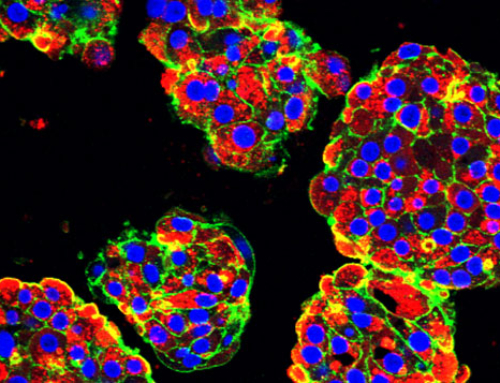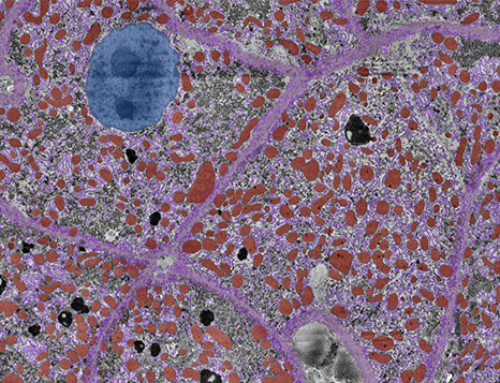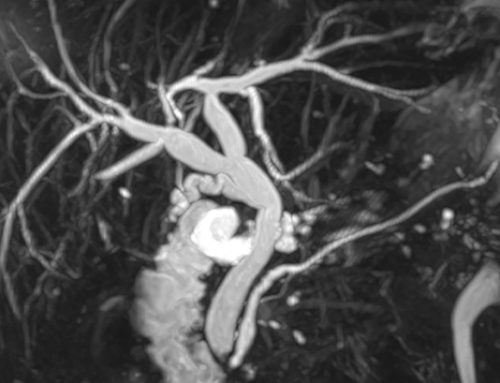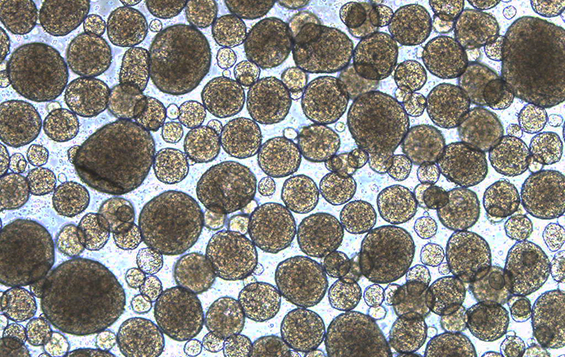
Phase contrast image of stem cell-derived hepatic aggregates. (Image provided by the Ogawa lab.)
Affiliate Scientist Shinichiro Ogawa, McEwen Stem Cell Institute, University Health Network (UHN), is focused on creating liver cells that can regenerate damaged livers in people with end-stage liver disease.
Medicine by Design’s Pivotal Experiment Fund has invested in the early-stage translation of the liver cells from experiment to clinical application. The support enables Ogawa, alongside other researchers, to advance this research to a stage where it is ready to attract additional investment.
Ogawa was formerly a physician in Japan and bridges his clinical experience with stem cell research to benefit patients. He works closely with other Medicine by Design liver team labs including that of Gordon Keller (director, McEwen Stem Cell Institute) in developing hepatocytes (the liver’s functional cells) for potential therapy.
“The problem with using regenerative cell therapies is that the patient’s immune system might reject the transplanted cells,” Ogawa, who is also an assistant professor of laboratory medicine & pathobiology at the University of Toronto, says. “We anticipate that combining gene editing techniques and 3D bioprinting technologies will allow us to create an immunoprotected cell product that will not be rejected.”
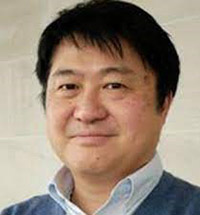
Shinichiro Ogawa, affiliate scientist at the McEwen Stem Cell Institute, University Health Network.
Beginning with a human pluripotent stem cell, cells that can turn into almost any type of human, Ogawa’s team has a method to create hepatocytes. Their Pivotal Experiment Fund will help the team to develop a method for producing transplantable and universally compatible liver tissue from stem cells using 3D bioprinter technology. The team’s goal is to incorporate strategies in the printing that will help the tissues survive attack from the immune system. The next challenge then is scaling cell manufacturing so enough cells can be produced to treat patients since the liver is the largest internal organ in the body.
The current shortage of donor organs for end-stage liver disease patients necessitates alternatives like Ogawa’s cell therapy, which could extend patient survival while they’re awaiting transplants.
Ogawa is part of Medicine by Design’s larger team working to harness the liver’s power to regenerate.
Back to “Five ways Medicine by Design is transforming the treatment of liver disease.”
